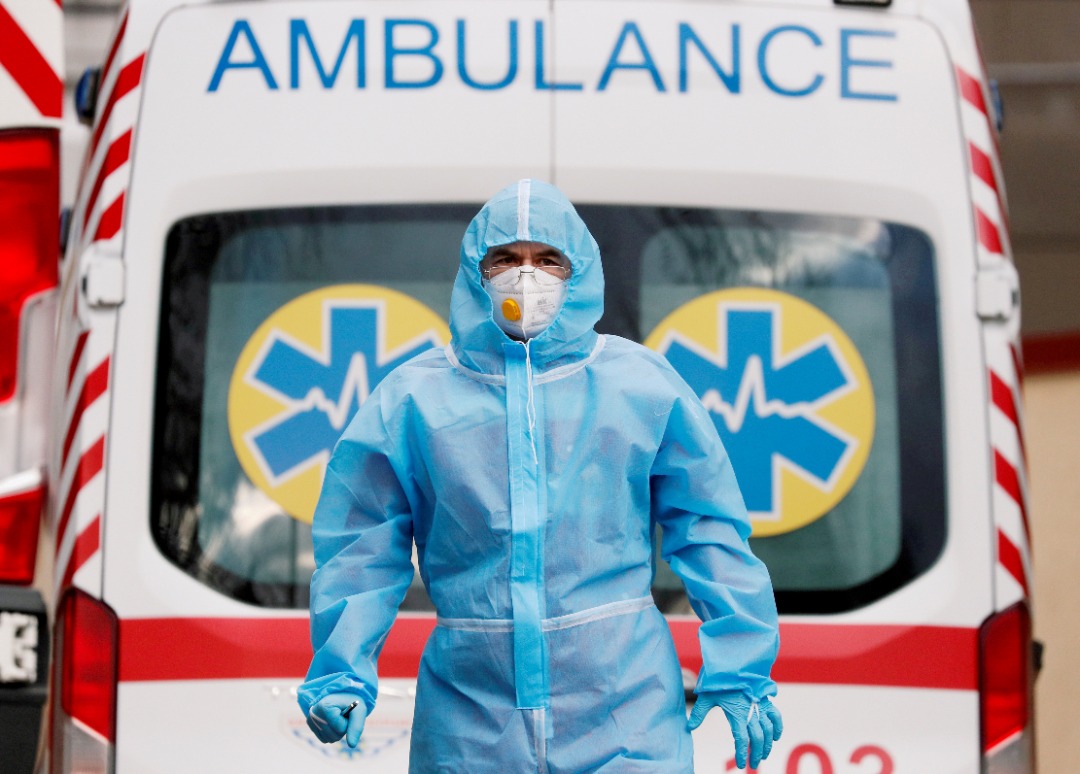By Athirah Mohammad
Malaysians from all walks of life are yearning for a better 2022 as people believe that the COVID-19 pandemic will begin to fade into an endemic disease, like the flu or the common cold.
As stated by the Director-General of World Health Organisation (WHO), Tedrom Adhanom Ghebreyesus, the year œ2022 must be the end of the COVID-19 pandemic as countries would by then have all the instruments to combat the virus.
With a total of 97.7 percent of the adult population in Malaysia having completed their vaccination against the virus, many assumed that this is a good sign for herd immunity to kick in.
While this seems hopeful, Malaysia needs to remain vigilant and to beef up surveillance because the threat posed by Omicron is tenuous and it will still be a few weeks before an extensive comprehension of it emerges.
What is known unambiguously is that this most recent variant of the coronavirus is extremely infectious to the extent that some scientists are revising the recovery timetable as the Omicron variant overtakes its antecedent Delta in several countries.
How much does life have to change because of Omicron? This is the question on everyones minds lately, and sadly there is no clear answer.
It appears that because of the fast-spreading Omicron variant, Malaysia’s plan to move into the endemic phase from the current COVID-19 pandemic status will be put on “pause”.
œWe are not postponing it. We are only pausing it for a while so that we can learn more about the spread of the new variant, Defence Minister Datuk Seri Hishammuddin Hussein said.
œWe dont want our efforts to go down the drain if we don’t monitor the spread of the Omicron variant, he added.
Although it sounds unpleasant, we cannot run away from the fact that the government has to be careful in its decision to ensure that the relaxation of restrictions will not contribute to any further spread of, or subsequent significant increase in, COVID-19 cases.
The emergence of these new variants indirectly requires full compliance of standard operating procedures (SOP) to be adhered to, more so with the opening up of so many economic and social sectors.
Hence, this may put global citizens in a worrying condition whereby they would think that stricter SOP compliance can slow down the transition of the endemic phase.
Assistant sub-editor of Free Malaysia Today, Najmi Syahiran, agreed that the new variant will affect the transition process since it will be delayed due to the rise of daily infection, ICU bed ventilation rates, as well as the death rate that could be expected to see a rising trend.
Najmi shared: œAs we are currently in phase 4 of National Recovery Plan (NRP), we are given a privilege. Our movements are no longer restricted, we are able to meet our family and friends and the important thing is we are not in another lockdown.
œHowever, the variant Omicron will somehow become an obstacle for us initially when there is a need for the SOPs to be further restricted and at the same time resulting in not being able to enjoy the privileges that were given previously.”
Apart from that, the Health Ministry is also studying the need for a possible fourth dose of COVID-19 vaccine to ensure recipients achieve the protective levels needed against this more contagious variant.
Getting vaccinated including receiving booster shots is the strongest form of protection in line with the highly transmissible Omicron variant in play.
The idea of ramping up booster administration by the government is most likely to be a right move because it may lead to a rapid fall in infection numbers as booster doses reestablish widespread population-level immunity.
Unfortunately, only 7,356,445 people have received their booster shots up as of 6 January, according to the Health Ministrys CovidNow portal.
We know that in recent months since the vaccine rollout, there have been common misperceptions about the COVID-19 vaccines. People are prone to refuse from being vaccinated because they are concerned over the possible serious side effects.
For that case, it might cause a permanent threat to the healthcare system in Malaysia that needs to be dealt with. Refusing to be vaccinated is analogous to an army that lacks military experience or is defenceless – such that when the real enemy (the virus) attacks, the chances of the army winning the battle would be very slim.
After all, vaccines are a proven powerful tool in the pandemic response to reduce the death toll, and to ease the strain on healthcare resources.
Along with adopting physical distancing, good hygiene practices and ensuring ventilation in enclosed spaces, consider vaccination as our civic duty. Let us do our part for the betterment of Malaysia!***
(This is part 2 of the 3-part series of special reports pair assignment on the theme “National Recovery Plan” for Feature Writing class)
